
IDAHOBIT-2025: Uniting for Equality, Dignity, and Change in Armenia
Each year on May 17, the world marks the International Day Against Homophobia, Biphobia, and Transphobia (IDAHOBIT) to raise awareness of LGBTQI+ rights violations and to celebrate the progress toward equality.
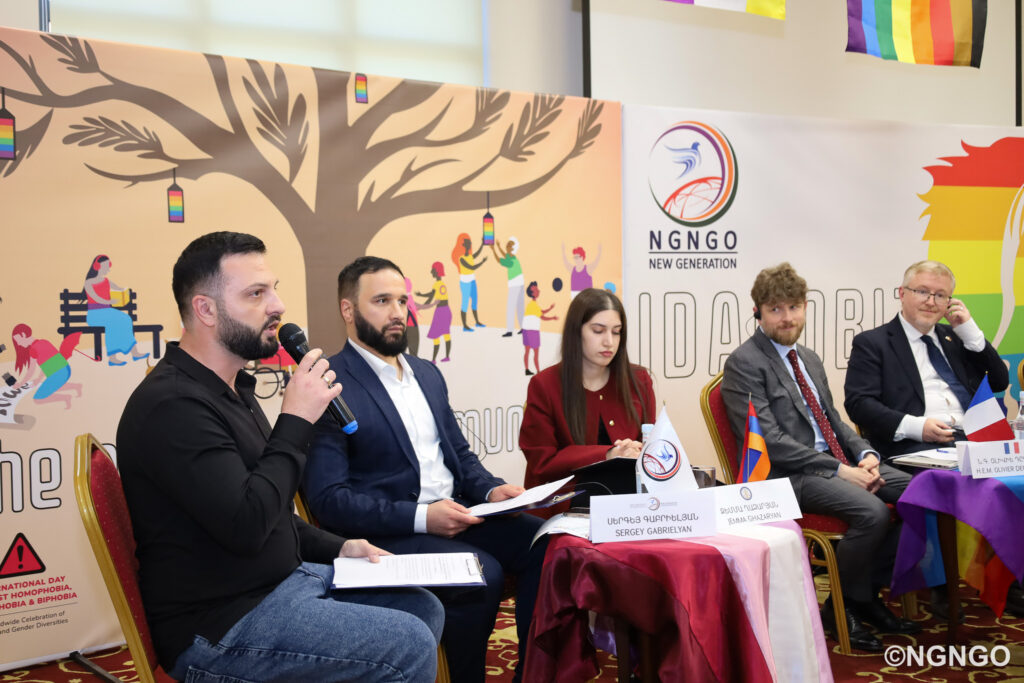 |
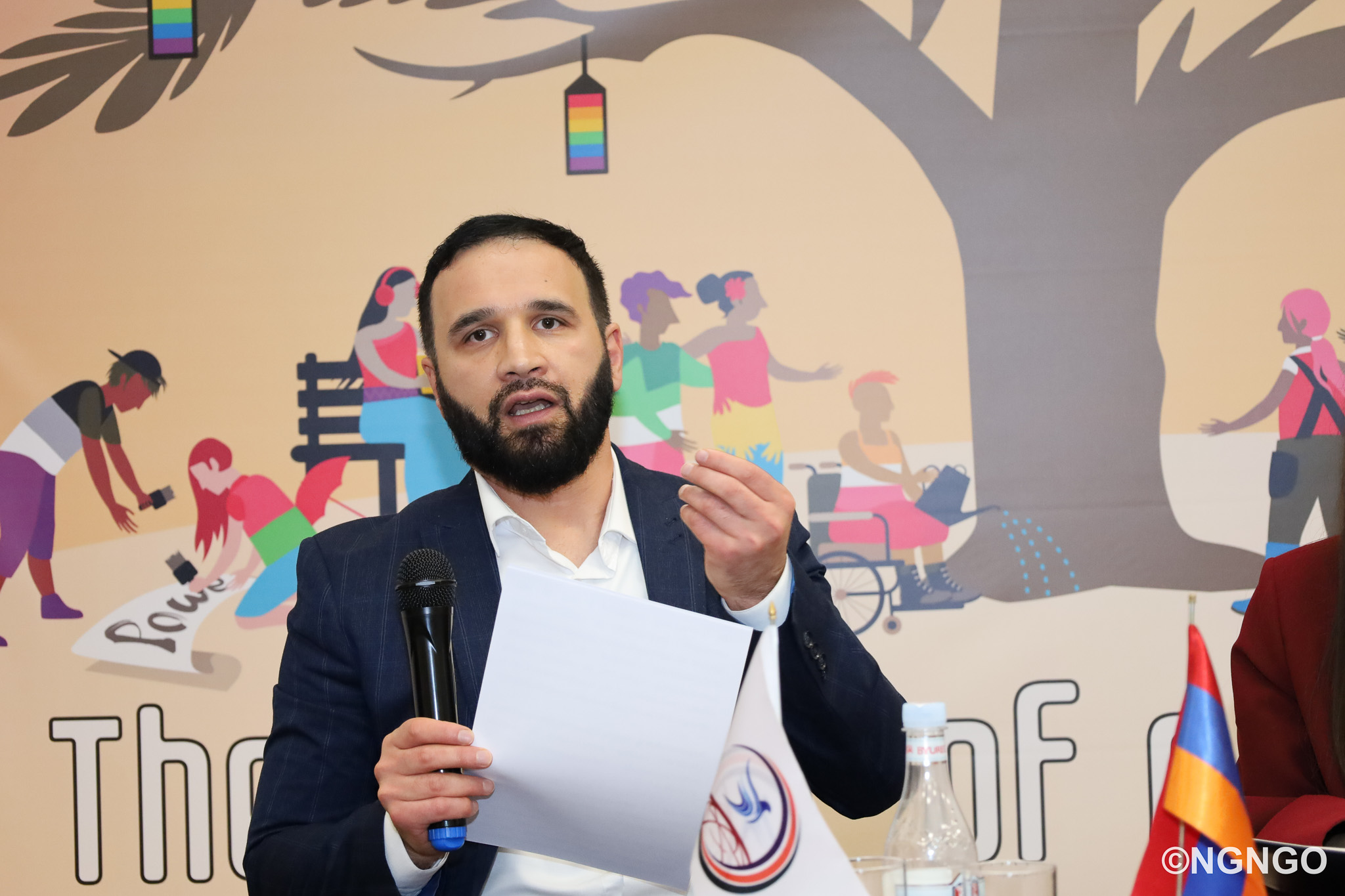 |
In Armenia, New Generation Humanitarian NGO (NGNGO) has become a steadfast leader in organizing annual commemorative events that both amplify community voices and foster solidarity across civil society, diplomatic and international partners, and government representatives.
This year’s event was themed “Power of Communities”, highlighting the indispensable role of community-led movements in promoting LGBTQI+ rights and creating inclusive, resilient societies.
 |
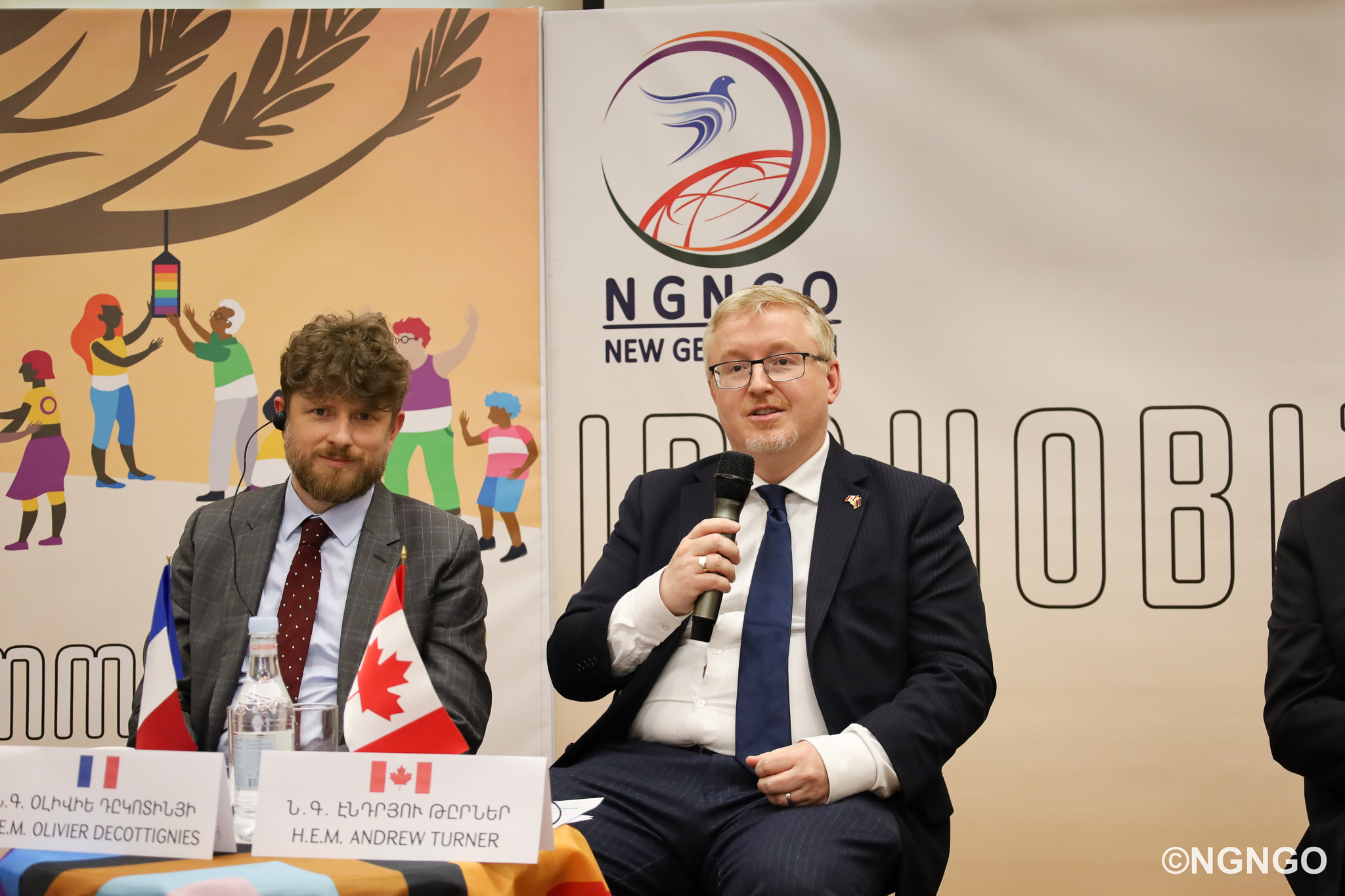 |
The event was facilitated by Arman Sahakyan, Diversity Programs and Community Engagement Coordinator at New Generation Humanitarian NGO. In his opening remarks, he stated: “This event is a space to celebrate our collective strength, analyze the challenges we face, and shape a renewed commitment to action.
We will hear powerful voices, share experiences, and, most importantly, highlight the individuals and communities who, every day—often quietly, but always bravely—fight for change.
Thank you for being here. Your presence matters. Your voice matters. And together, we are stronger.”
The event opened with a welcoming speech by Sergey Gabrielyan, President of New Generation Humanitarian NGO (NGNGO). In his remarks, he emphasized the dual importance of the day as both a symbol of visibility and a platform for continued advocacy:
 |
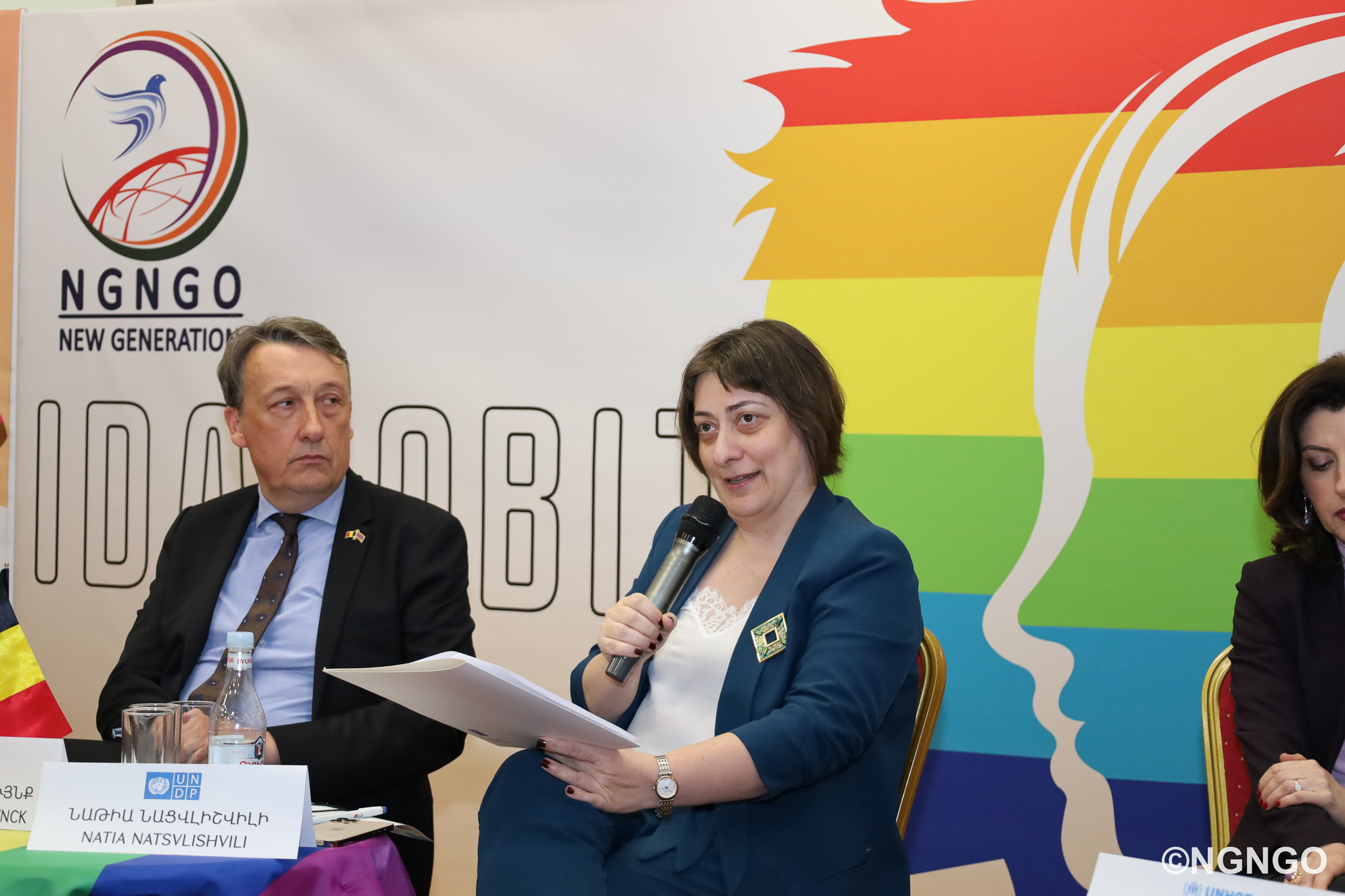 |
“This day is a reminder for all those who still struggle daily for visibility, for a life of dignity, and for the right to love freely. In Armenia, as elsewhere, discrimination and violence remain pressing realities—but today, we reaffirm our collective commitment to equality, human rights, and dignity.”
Gabrielyan also underscored the central role that community-based organizations play in the fight for equality, functioning as safe spaces, sources of psychosocial, legal and other types of support, also as agents of societal change. He recognized the vital contributions of diplomatic missions and international organizations, whose partnerships have strengthened capacity building, raised awareness, and enabled systemic change for LGBTQI+ individuals across Armenia.
 |
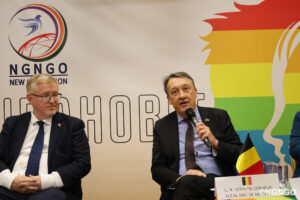 |
Following the opening, the event featured greetings from key diplomatic and institutional figures, including:
- H.E.M. Olivier Decottignies, Ambassador of France to Armenia
- H.E.M. Andrew Turner, Ambassador of Canada to Armenia
- H.E.M. Eric de Muynck, Ambassador of Belgium to Armenia
- Natia Natsvlishvili, UNDP Resident Representative in Armenia
- Monica Sandri, UNHCR Representative a.i. in Armenia
- Siddhartha Sankar Datta, WHO Representative and Head of Country Office in Armenia
- Paul Morris, Deputy Head of the UK Embassy in Armenia
- Erik Tintrup, Deputy Head of the Embassy of the Federal Republic of Germany
- Jema Ghazaryan, Head of International Cooperation Department of Human Rights Defender of Armenia
 |
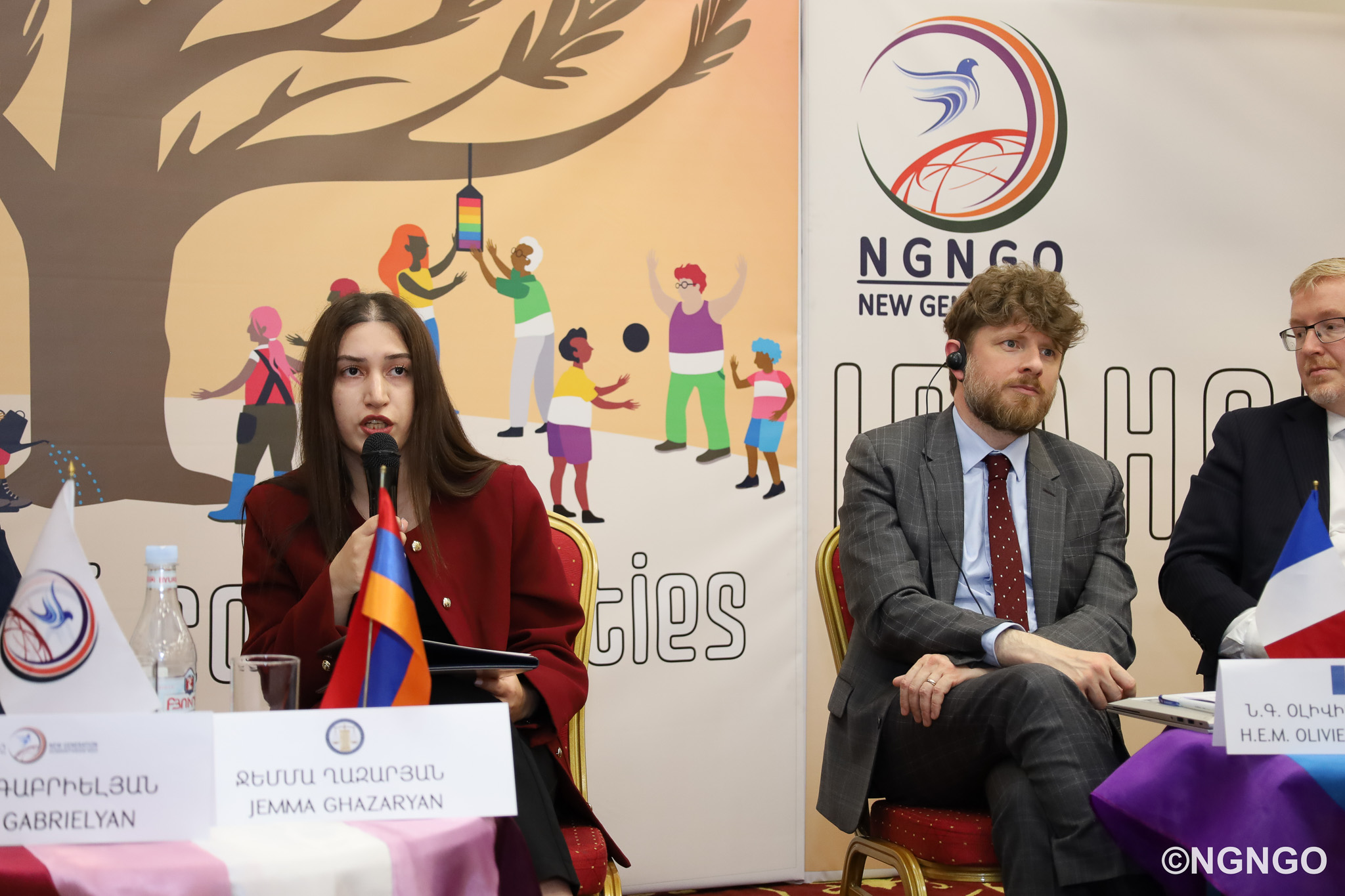 |
Each speaker reaffirmed their country or organization’s commitment to human rights, equality, and inclusive development, echoing the theme that protecting LGBTQI+ rights is not only a matter of justice, but also of social and economic strength.
Plenary Discussion: Voices of Experience and Resistance
A central part of the event was the plenary discussion, titled “Armenia at the Heart of Democracy: Progress and Challenges.”
The session spotlighted the real-world experiences of both local and migrant LGBTQI+ activists navigating identity, migration, and human rights advocacy.
Their reflections painted a vivid picture of both the progress made and the work still needed to ensure Armenia becomes a truly inclusive society.
Emil, a queer activist from Armenia, reflected on the transformative power of visibility:
“Becoming a visible part of the LGBTQ+ community was not an easy path. But I’ve learned that visibility is our resistance. Culture, including digital culture, can play a powerful role in dismantling discrimination and sparking public empathy.”
He also spoke about his role in Armenia’s 2018 revolution:
“Back then, we had hopes for deeper democratic change. Some of those hopes have been realized, others not yet. But I do see more dialogue now about inclusion—even if progress is not yet seen.”
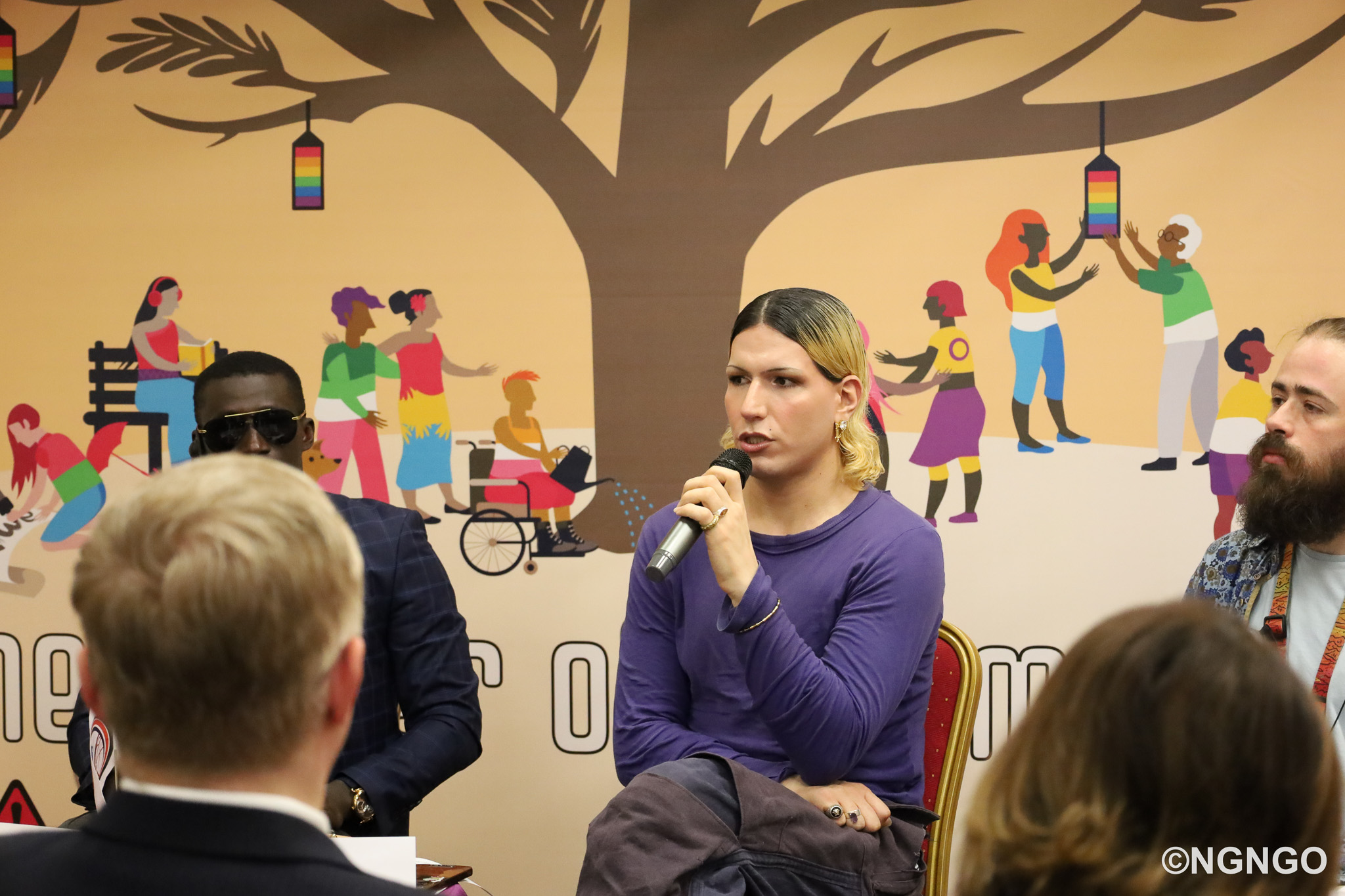 |
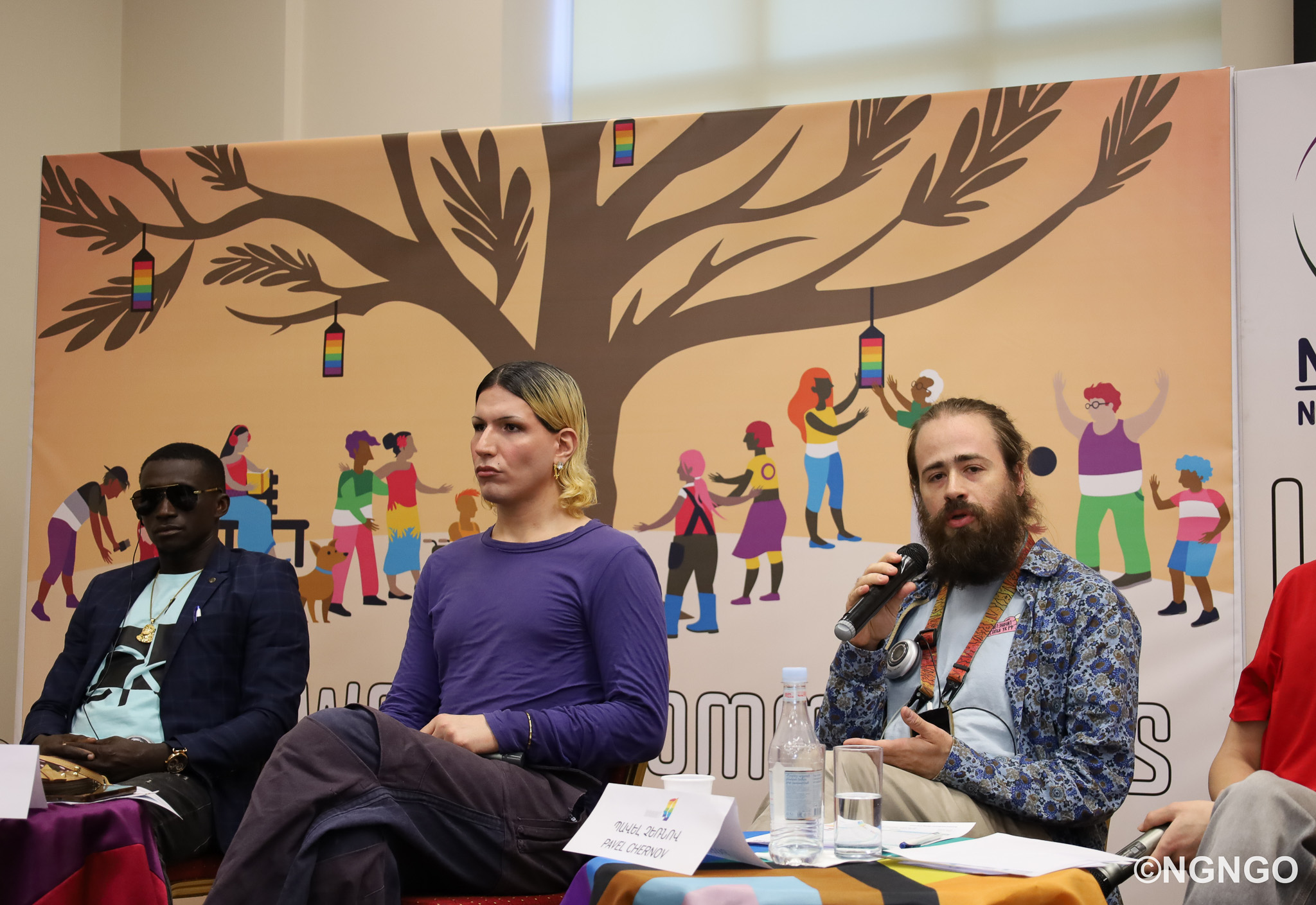 |
Pavel, a migrant from Russia, described fleeing a country where anti-LGBTQ+ laws have turned into tools of oppression:
“The biggest challenge in Russia is not just legal—it’s the atmosphere of fear. As a migrant in Armenia, I’ve faced new difficulties, but also solidarity. Civil society and international organizations have provided real support—and that was often life-saving.”
Melvin, a migrant from Sierra Leone, West Africa shared his journey of persecution and survival:
“In my country, I lived under constant threat. Coming to Armenia was a necessity, not a choice. Here too, life is challenging as a migrant—but I’ve received help, and that support gave me the strength to believe again in a better future.”
 |
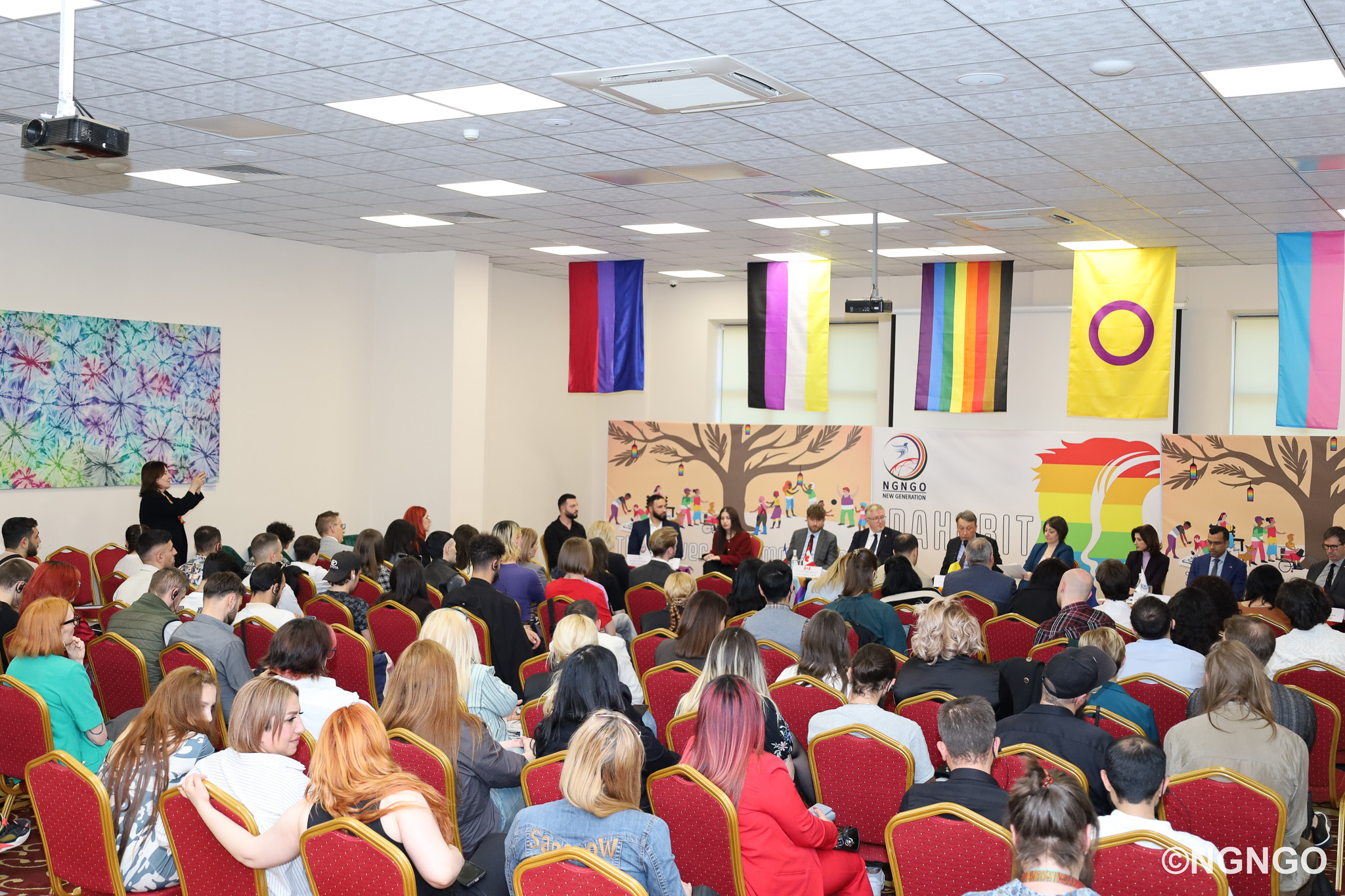 |
The event concluded with a dynamic Q&A session and closing reflections, summarizing key messages of solidarity, courage, and commitment.
IDAHOBIT-2025 once again demonstrated the capacity of community leadership, international cooperation, and civic engagement to drive change. NGNGO continues to stand at the forefront of this effort—working toward a future where everyone, regardless of sexual orientation or gender identity, can live free, safe, and with dignity.
As Sergey Gabrielyan eloquently put it:
“We are not just speaking about what we have—we are looking ahead to where we’re going. Our goal is a society where everyone lives free, safe, and dignified lives, regardless of who they are or whom they love.”
Facilitator Arman Sahakyan concluded the event and announced its closing with the following words:
“The power of community is revealed where people stand by one another — supporting, listening, and fighting for justice and equality.
We heard powerful stories, important messages, and witnessed the solidarity our society so deeply needs. But our work does not end with today’s event.
Our work continues every day — in our communities, in our organizations, in our families, workplaces, and circles of friends.
Let this day not only remind us of the challenges we face, but also inspire us to keep moving forward — to build a more inclusive, safe, and united society.
Thank you to everyone for your presence, your support, and your dedication to the cause.
Happy IDAHOBIT 2025!”




